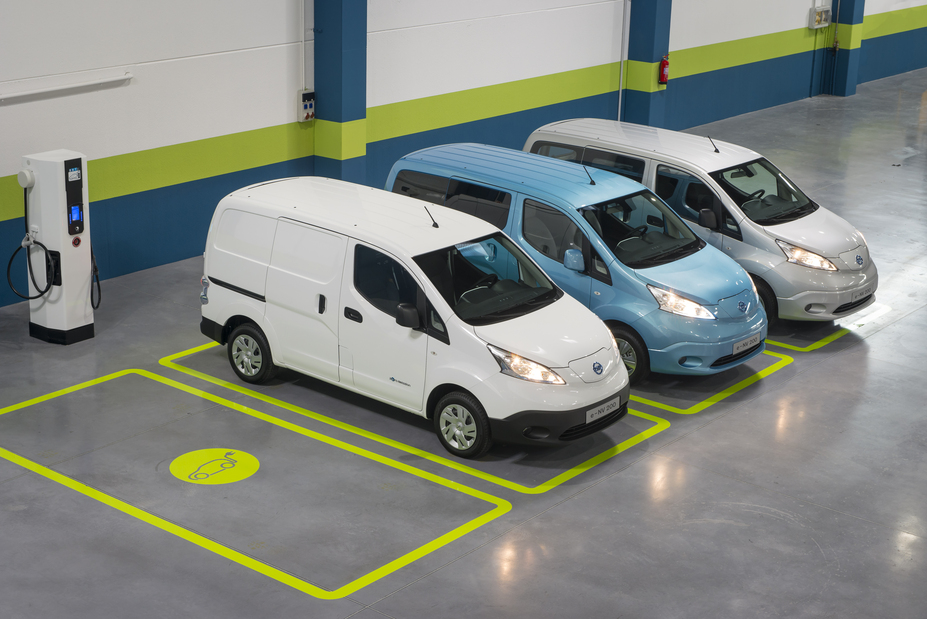As more fleets turn to electrification, charging management services may require the next level of connectivity. By Megan Lampinen
Fleets are emerging as early adopters of electric vehicles (EVs), and the market for fleet charging services will prove a lucrative one. McKinsey estimates it could be worth US$15bn a year in the US alone by 2030. For service providers, 5G could prove a game changer in terms of what they can offer.
EVPassport is looking into just that. The company offers an EV charging hardware and software platform for businesses, and sees considerable potential in 5G to improve the charging experience. In May 2021, it was chosen to participate in the 5G Studio run by Verizon and Newlab, a project that incubates start-up companies to leverage Verizon’s 5G network and mobile edge compute (MEC) capabilities. Here, EVPassport operated three Level 2 chargers at Newlab’s headquarters in the Brooklyn Navy Yard. The aim was to demonstrate how 5G could facilitate fast, simple and reliable charging solutions for EV fleets. The results are telling.
The combination of the 5G Ultra Wideband network and MEC allowed EVPassport to reduce latency in charging sessions by more than 50%. It also meant the company could orchestrate chargers in real-time to rebalance the load based on EV charging levels. For instance, it could automatically prioritise power to vehicles with lower charges. EVPassport Chief Executive and Co-founder Aaron Fisher believes 5G could indeed prove the way forward as large fleets electrify.
What sort of connectivity powers most of the EV charging network today?
Our current EV chargers are powered by a combination of Ethernet, WiFi, and LTE. We select the best connectivity for locations based on site analysis that measures cellular or WiFi interference density and various other factors.

What is the problem with charging networks powered by 4G?
Charging networks powered by 4G/LTE are fine in small quantities or consumer-focused applications but when you begin to scale up into dozens of chargers for a location and the specific target market is fleets, you need to have a faster connection. With fleets, latency of communication can cause disruptions to timing for deliveries, ride-share drivers, and more.
Can you suggest a couple real-world scenario where 5G would bring significant benefit to EV users?
What EVPassport tested at the Brooklyn Navy Yard involved installing several EVPassport Ezra chargers and adding 5G connectivity. We focused exclusively on fleet charging applications because a delay in charger communication that could last several seconds could add up when a charging location has dozens, or hundreds, of EV chargers for cab drivers, delivery vehicles, etc. Reducing latency in these specific scenarios while not requiring a complex web of Ethernet cables will lower cost and improve reliability for fleet-based EV charging stations.
What is the aim with Newlab’s 5G Studio?
The 5G Studio is designed to allow innovative companies to experiment with cutting edge technologies that are not necessarily ready for deployment. Coming out of the Studio, we now understand the benefits of a 5G chipset in future EVPassport chargers and can even begin the formal process of certifying hardware for public deployment on Verizon’s 5G network.
Why was EVPassport chosen to participate in the Studio and are other charging providers involved?
There was one company involved that focused on vehicle-to-grid technology. We were selected because of our focus on innovation, transparency and openness. We are the only EV charging network that doesn’t require users to gain membership and the only network that has an open API. Testing new communication technologies fits right into our mould, because we always want to be on the front lines of what comes next.

What has been the biggest takeaway from this project so far for EVPassport?
EV charging providers need to understand and openly discuss the technologies they use in their products, whether it is hardware or software based. The more networks talk openly about fail safes, the better as well.
How would you sum up the impact of 5G for EV charging in general?
Faster communication over 5G from the EV charger to our cloud software simply means a snappier and more reliable user experience. A core component of the Studio for us was also running a majority of what would normally be our cloud software on a local device, allowing the charging session to occur entirely offline.
How quickly might this be rolled out across key EV markets around the world?
Right now, the 5G Studio focuses on piloting new technologies, but as chipsets become certified and incorporated into our future hardware roadmap, we are looking at a wider offering for fleets.
